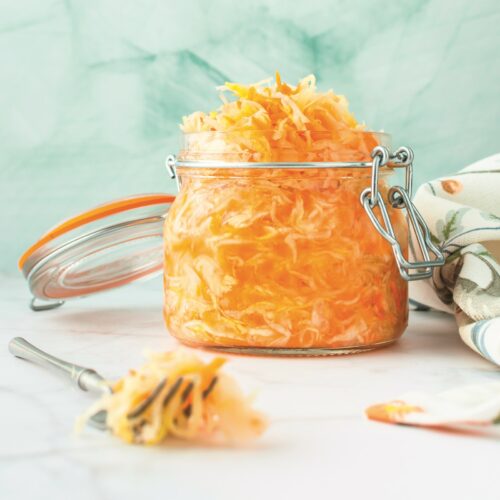
Gut health can affect brain function, mood — and even behaviour. Keeping our tummies happy is worth the effort!
The gut’s important role
The gut is one place where our immune system meets a lot of foreign matter; not just food and nutrients (and some non-food items), but bacteria, viruses, fungi and parasites. It’s therefore no surprise that a significant component of the immune system is housed within the gut.
Some cells in the gut release factors affecting the whole body’s immunity, while others function only to protect the gut lining.
An integral part of the gut’s immunity process is its bacteria. Gut bacteria is essential to the functioning of our immune system. Our intestines are the largest single immunity organ in our body.
Bacteria, or the nutritional components they produce, have been shown to interact with immune cells and affect how immune systems work.
1 Try fermented foods
Fermented foods are an easy way to increase the beneficial bacteria in our gut. Kefir, kimchi and yoghurt have all been shown to contain bacteria and yeasts that can help reduce inflammation and improve gut bacteria growth.
2 Manage stress
Not only does stress influence your gut bacteria, growing more of certain types of bacteria has also been linked to an increased risk of experiencing anxiety and depression. Managing your stress can be one step towards improving your gut health and immunity.
3 Make omega-3 a regular
Omega-3 fats from fish are known to be anti-inflammatories which help prevent heart disease and ease arthritis pain. Now it seems omega-3s also help reduce inflammation in the gut by influencing the growth of bacteria.
4 Eat more fibre
Gut bacteria digest certain types of fibre to produce short-chain fatty acids which reduce inflammation and can affect the immune system. Get your daily dose from fruit, veg, whole grains, nuts and seeds.
5 Artificial sweeteners
Artificial sweeteners like mannitol and sorbitol are known to alter the gut flora. Although research shows that they can affect the gut microbiota by reducing bacterial diversity and encouraging overgrowth of certain types of unfavourable bacteria, artificial sweeteners are only one part of the Western diet profile that may contribute to changes.
6 Choose your alcohol carefully
Alcohol can increase the growth of certain bacteria that potentially cause an increase in toxins in the gut and cause inflammation. Keep alcohol to a minimum.
7 Mind that sat fat
A high-fat Western-style diet reduces a bacterium called Akkermansia muciniphila, which plays a part in reducing inflammation through changes to immune cells.
8 Use coffee wisely
Coffee contains caffeine, which has been shown to change gut microbiota. Coffee contains soluble fibre and phenolic compounds that feed gut bacteria. A study found drinking three cups of coffee a day increased the amount of bifidobacteria, especially in people whose numbers were low. Bifidobacteria are particularly useful in the functioning of a healthy immune system.
For more advice on gut bacteria, we recommend: A plant-rich diet may help your gut bacteria fight disease or Gut health update: What your gut bacteria can do for you
Article sources and references
- Thirumdas R et.al. 2021. Role of food nutrients and supplementation in fighting against viral infections and boosting immunity: A review. Trends Food Sci Technol. Apr;110:66-77.https://pubmed.ncbi.nlm.nih.gov/33558789/
- Menni C. et al. 2017. Omega-3 fatty acids correlate with gut microbiome diversity and production of N-carbamylglutamate in middle aged and elderly women. Scientific Reports. Vol 7:11079.https://www.nature.com/articles/s41598-017-10382-2
- Payne AN et al. 2012. Gut microbial adaptation to dietary consumption of fructose, artificial sweeteners and sugar alcohols: Implications for host-microbe interactions contributing to obesity. Obesity Reviews 13:799-809.https://pubmed.ncbi.nlm.nih.gov/22686435/
www.healthyfood.com










